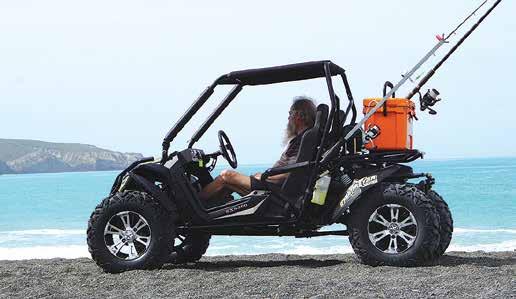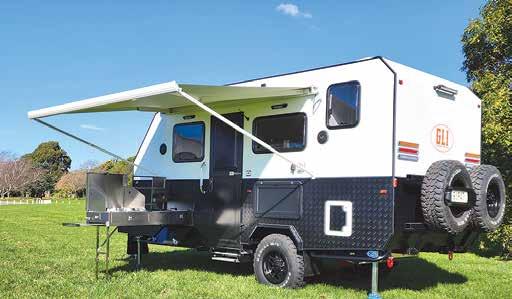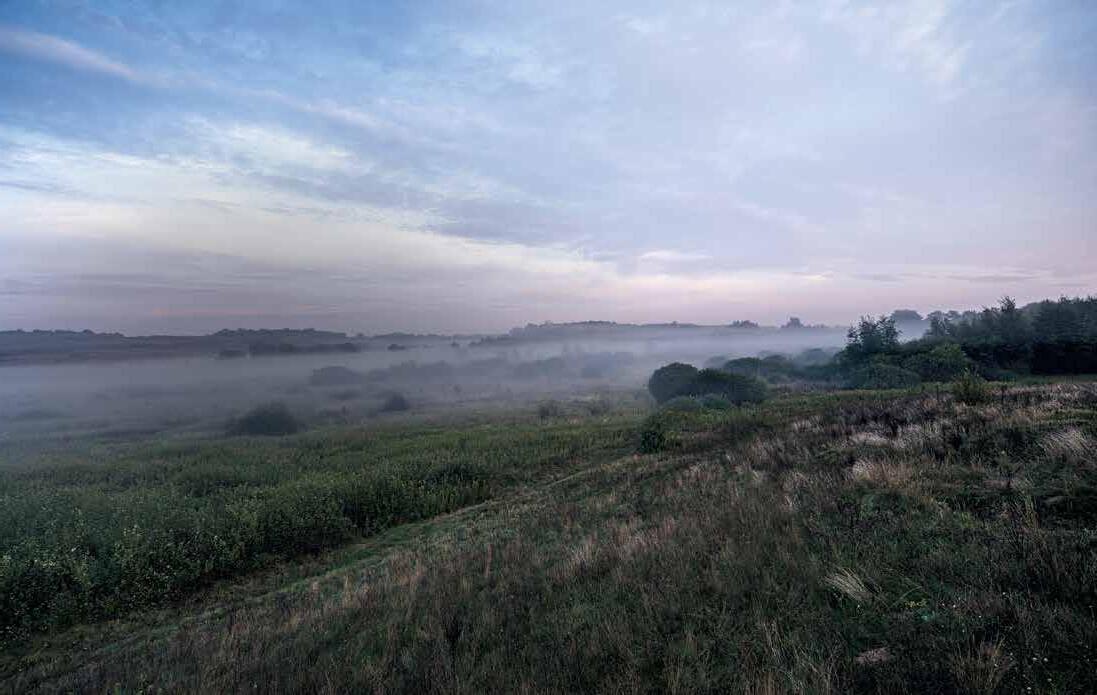




































It was no secret that Tasman Bay was full of snapper and that they were feeding hard before spawning. My Facebook feed had been full of big snapper being caught by everyone and anyone, and I was itching to get
when Dad’s friend Simon work.
The wind was dropping, sun was setting, and the tides were perfect: all the stars were aligning. Simon had found recent success with a simple old fashion stray line so we stuck to what was working. Once the berley was down, we lobbed some whole squids out the back of the boat, sat back, and waited. I had barely sat down when I heard the heavenly sound every ZZZZZZZ! I launched towards the screaming reel
Within minutes, a few nice pannies were in the chilly bin and we couldn’t get the baits out fast enough. One piling up and they were
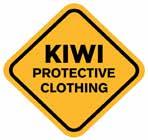
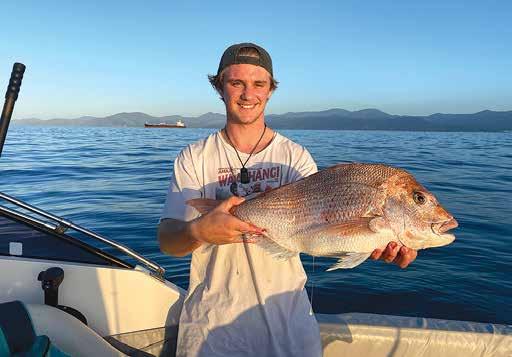
gradually getting bigger. Unfortunately only Simon and I knew what we were doing and Dad was yet to get on the scoreboard (Editor’s note: careful son!).
Finally, after getting bored of watching me to hook something and it mine. The snapper was full of energy and, on light tackle, it put up one hell of
into the net and lifted on board. The deck was instantly sprayed with white milt and Dad exclaimed, “Huh look at that—sperm everywhere!”
Simon never missed a beat and dryly replied, “Yours or and the light depleting, we started to pack up but I wasn’t done, no way was
than me. I threw out one last bait in hopes of a big
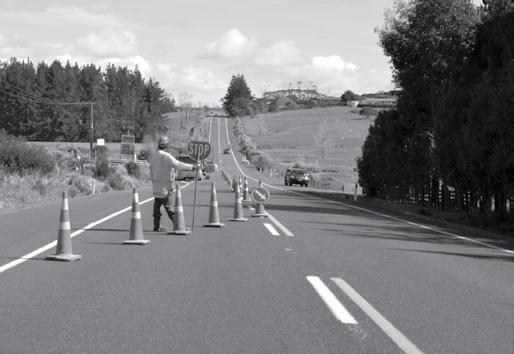
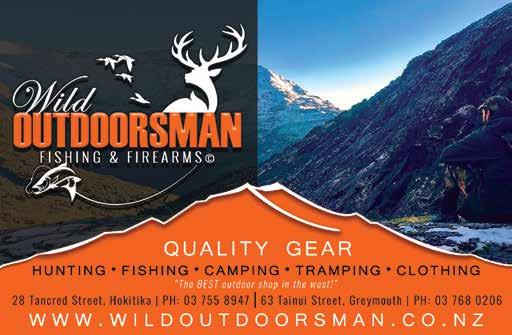
Straight Arrows and Fast Bullets
A Hunter’s Tales
Peter Hill
Bateman Books
RRP $40
Reviewed by Daryl Crimp
moocher. Thirty seconds later my reel was screaming and once the hook was set, I could feel this wasn’t a little
line whenever it got close to the boat but like his friends before him, he was no match and ended up in the net. The snapper pushed the scales to 15 pounds, just bigger than Dads. Take that.
(Editor’s note: This boy exaggerates—no idea where THAT comes from).

of classic New Zealand hunting book in the mould of the likes of Holden, Harker, and Severinson. Authentic tales of hunting the way it used to be through to contemporary times, with a good dose of adventure spiced with hardship, hard yards and backbone, and laced with the evolution of good ethics. A touch of old hunter wisdom and bushman philosophy rounds out this biographical ‘good Kiwi yarn’.
of archetypal Kiwi hunter era, lends a deft hand to his pen. His writing style is relaxed yet polished; his stories unfold naturally, spun in an engaging manner with clarity, honesty and humour.

He is a natural storyteller who spins a good yarn, and he has got a lot to yarn about. Spanning decades of hunting, Peter chronicles his life in the hills with bow years, working for the Forest Service, possuming, recreational hunting and more.
Predominantly a North Island hunting book, it will appeal to all hunters who enjoy an evocative and engaging read. Despite the somewhat ‘messy’ front cover, the writing is tight and well supported with Highly recommended for the hunter’s library.
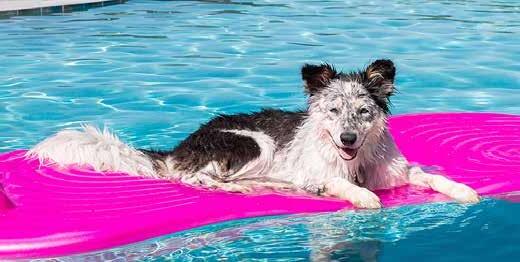






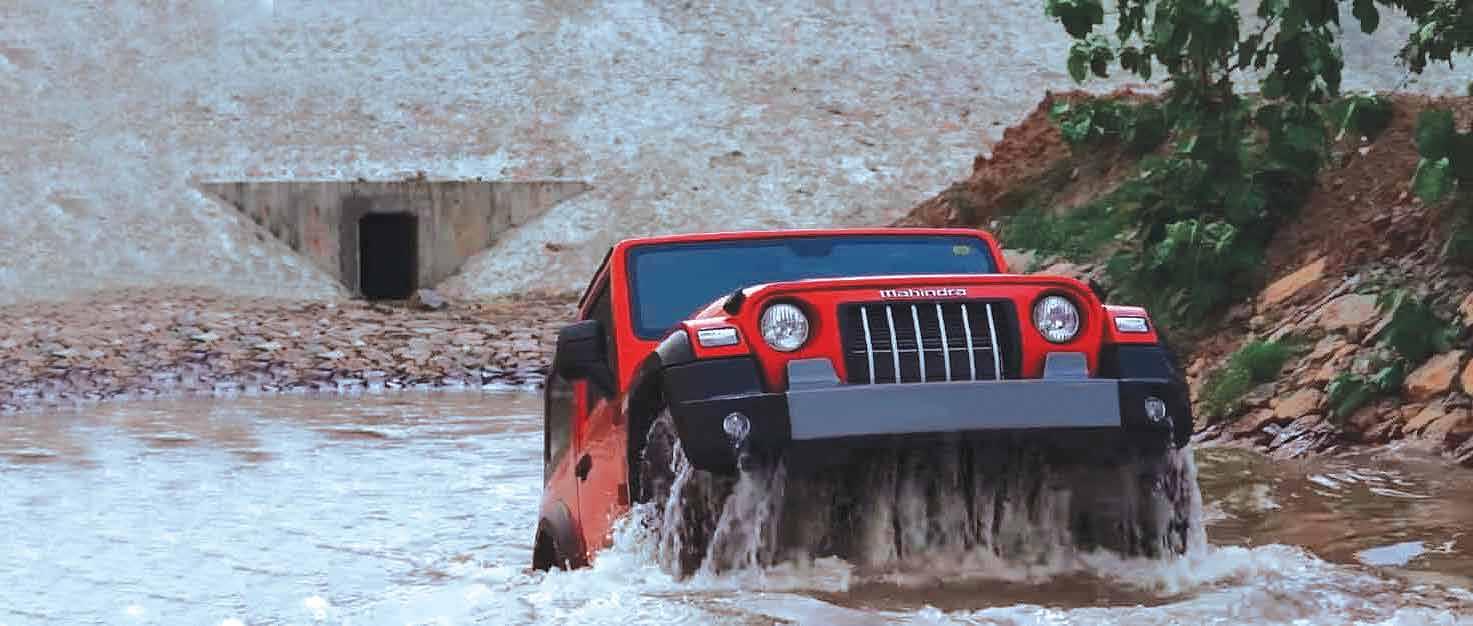




are the quiet achievers when it comes to protecting
across various spatial scales. In a previous article, we described the measures they had voluntarily put in place
species life stages. More recently, the population status of yellow-eyed penguins has raised issues
being proactive about.
Following a recent industry meeting, a number of use commercial set nets in the coastal areas of Stewart Island, have volunteered to suspend their set netting
activity in targeted areas around the Horseshoe Point and Port Pegasus to protect yellow-eyed penguin. These restrictions are in addition to continued support to retain the current 4nm voluntary Island, established by the
The restriction of set netting is undertaken out of concern for the overall population of yellow-eyed penguin on Stewart Island and more widely in the Southland/Otago region. While we reject the notion that commercial set netting is solely responsible for the plight of the population, these operators have

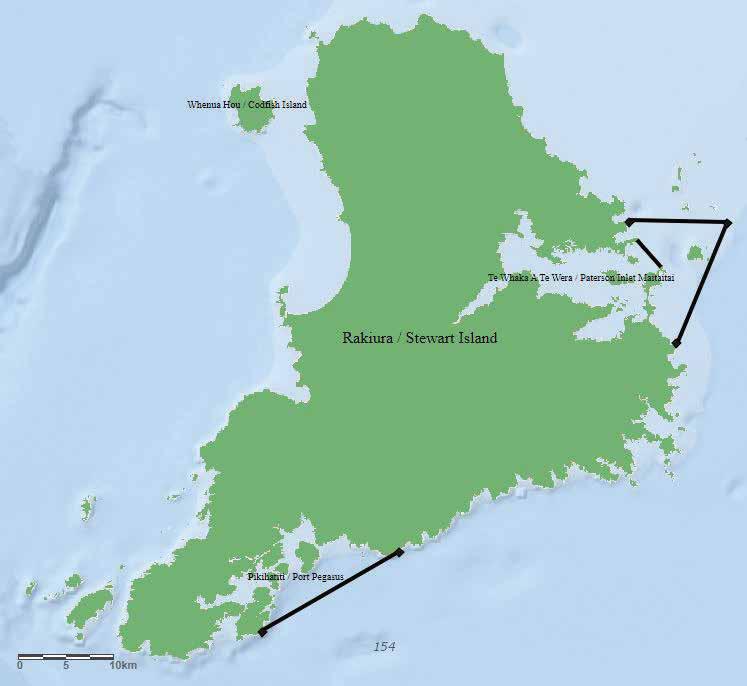

resolved to take further action to minimise effects on them. Loss of habitat on land, disease, human disturbance, heat stress and hypothermia, as well as predation on the chick population by introduced species such as feral cats, ferrets and stoats also
on yellow-eyed penguins.
Sharks, barracouta, fur seals and New Zealand sea lions have been known to take yellow-eyed penguins at sea.
with tracking devices (GPS dive loggers, dive transmitters and satellite transmitters) to investigate their at-sea movements and diving behaviour across the mainland range that includes Stewart Island. This

work was undertaken by University of Otago between
GPS tracking data provides invaluable spatial information when identifying overlaps in foraging distribution and commercial
practices and consider whether voluntary spatial or temporal restrictions could be adopted to minimise their risk to those species.
set netting, work under a set of operational procedures
management plans, with overview from Department
have the latest mitigation methods and advice.
The industry will continue to monitor the risk of yellow-eyed penguins and protected species more widely as more sciencebased evidence is collected and peer reviewed. The Operational Procedures for Protected Species can be found on the Fisheries Inshore NZ webpage https://www.inshore.co.nz/ operational-procedures/ For more information on these special birds and the other factors affecting them
found on the Department of www.doc.govt.nz/nature/ native-animals/birds/birdsa-z/penguins/yellow-eyedpenguin-hoiho/



































The country is drying out after a relentlessly wet winter and longer days are allowing more time for fishing.
Daryl Sykes reflects on the change of seasons, the opportunities for fishing and diving..
In the small coastal village where I live, the pace of fishing and boating picked up over Labour Weekend. Boats appeared on the beach early in the morning and the hum of tractors and grinding of metal on gravel, as trailers were shunted into the sea, briefly drowned out the morning chorus of hungry seagulls.
It was good to note, almost every person onboard those recreational fishing boats was wearing a life jacket. In no small part, because of a very pro-active local fishing club, the majority understood the fishing rules: bag limits, net lengths and size limits. The fishing has been good here, as we slosh out of a very wet spring into an uncertain summer. The fishing will improve, as the first months of the New Year normally o er up long periods of settled weather and good catches of school groper, gurnard and tarakihi. Further west in the bay, the surfcasters are already picking up goodsized snapper, so the mood is positive and expectations are high.
The recreational divers will probably have much leaner pickings. Droves of them descend on the coast on every day that sea conditions are suitable for a grovel in the rocks and weeds. The pursuit of legal pāua or big kina is a di cult one—the easy roadside access to miles of coastline ensures that all the big ones have been picked over well before now. Proof of diver frustration and illegal intent are the numerous small piles of undersized pāua shells to be found under rocks and driftwood. Meat is easier to carry, easy to hide and, once minced, the size of the original pāua is purely speculative.
The lobster divers will do better than their shellfish
gathering cousins. Lobsters routinely move around their habitat and in the lead up to Christmas, can be found in close to shore and will be in tip-top condition. The males have recently moulted, have hard shells and are ‘meaty’ on the inside; the females have also put on condition after the debilitating spawning cycle back in September. As summer progresses, there is quite a dance to be done once the females have moulted again and prepared themselves for mating in February/March and the mature males are herding up their love nests. If you are a reasonably proficient diver and cannot get a bag limit of lobsters on more than just a few days over the Christmas/ New Year period, then I respectfully suggest you take up a new hobby.
The good keen men and women—often of a certain age or physical condition— who have a preference to drive a boat to set and haul lobster pots will get more fishing days in than the divers. And, if they pay attention to their gear and to the quality of their bait, fishing success will be theirs.
The local commercial lobster fishermen have been having a great season. Catches and catch rates have been steady and the legal state lobsters are showing up in excellent condition. That will only get better over the next few months as more post-moult male lobsters become vulnerable to potting.
Many of the local commercial operators have exhausted their annual catch entitlements and have already brought their gear ashore (a few unruly boat fishermen will be upset they have to use their own anchors instead of tying onto


commercial gear).
Good gear and good bait are what catches lobsters. Pots must have regulation escape gaps and both pots and floats must be marked to identify the owner. Set nets can be a hazard if not properly tended. Stay with your nets, run short soak times over the change of tide and never cut a net loose into the ocean. Drag it o if you have to—a torn net on deck is far less cost to you and the fishery than an abandoned net in the sea. Take particular care with ropes—they can also be a real hazard to both man and beast if not shortened up to suit the depth of water in which gear is being set. Getting your own rope around your own prop is more than embarrassing, it is potentially dangerous.
As the numbers of recreational users continues to increase so does the opportunity for gear conflict and entanglement. Marine mammals can pick up loose rope and wrap themselves quite quickly. Entanglements should be promptly reported to DOC. You might get lucky and be able to unravel a small dolphin or orca, but it is technically illegal to do so. When it comes to the big stu , it is downright dangerous and lives have been lost when wellmeaning fishermen have tried to unwrap a whale. Call DOC 0800 DOC HOT (0800 362 468). They have specialist dis-entanglements teams.
We expect a lot of the ocean—customary, recreational and commercial users have both their daily targets and limits, and the current economic climate has increased fishing for food activity. The increasing cost of going fishing—fuel in particular—is motivation for people to catch their limit.
Even if every legitimate harvester plays by the rules, a remarkable quantity of fish and shellfish is removed from the sea annually. The commercial guys are held to account for every fish they take and land, the others not so much. Recreational bag limits for most popular species are generous and high-grading smaller fish in preference to the largest ones should be discouraged. Big hooks, big baits generally result in big
beam sounders and the proliferation of recreational media has opened up fishing to even the least able amongst us. How many times have you been on ‘your spot’ in the middle of a seemingly empty ocean only to watch a few late arrivals coming over the horizon and anchoring up within a hundred metres of you?
All of which points to the importance of duty of care
local level, not in relation to the stock or species as a whole. Therefore, the responsibility—at the very least—is to play the game by the rules.
Fishing success is a consequence of stock abundance and access opportunities. Don’t squander the latter by littering beaches and boat ramps, or by leaving vehicles and trailers in places where they impede tra c, including emergency services. Be
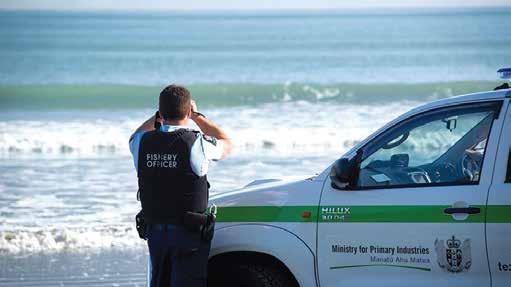
fish. The best snapper I ever landed took half an albacore tuna head on a hook.
Then there are the greedy, self-interested fish thieves who pillage whatever they can, whenever they can get away with it. Successful prosecutions, such as recently reported for hundreds of kahawai and illegal pāua, are mere snapshots of what is really going on. Legitimate fishers cannot a ord to subsidise fish thieves so take the 0800 4 POACHER (0800 47 62 24) number with you—and use it please.
The problem with spring/ summer fishing is that intensive e ort is localised; there are few ‘secret spots’ these days. GPS, multi-
and custodial attitude in relation to fisheries and shellfish resources. We have a fisheries management regime that facilitates utilisation whilst it attempts to ensure sustainability. More than I want to, or should have to, I have frequently written that ‘we cannot manage what we do not know’. The Ministry for Primary Industries simply doesn’t know what recreational and customary are catching each year, with any degree of certainty. Therefore, we cannot be certain that some stocks are currently sustainable, when we do not know what those catches are.
Uncertainty is amplified because so many people want to measure “sustainability” at a very
mindful of tikanga: the appropriate preparation and handling of seafood taken for food. Customary users will be alert to the abuse of their tikanga and increasingly they have the means to curtail fishing access in order to preserve it.
Like me, you probably spent most of winter and spring in gumboots, trying to keep dry and warm. There is heat in the sun now and it’s shining longer, which creates more time to get onto or into the water. Be safe, be responsible, remember that you do have duty of care and, above all, have fun. It is the fishing, not the catching, that is the true recreation. Fish in the bin after a day on the ocean are a welcome bonus.

Brendon Hogg - 20lb Snapper 8/0 ‘Westcoaster’ Snatcher®






The ultimate combination of lure and rig, with quality Black Magic Tough Trace and KLT® hooks. Best fished with a thin strip of bait, to enhance the natural swimming action of the skirt
Rigged with Black Magic C Point® or KL hooks and 60lb Tough Trace, delivering natural presented baits




Rigged with quality Japanese made hooks and available in 3 different sizes, perfect for targeting live baits





The original Snatcher® rig. Hand rigged in New Zealand and proven to catch a huge range of species including snapper, kingfish, trevally and gurnard
Aerodynamically designed surfcasting rigs, ideal for long distance casting. Rigged with chemically sharpened Black Magic hooks
Yep, I know, every stag is entitled to rub a few trees up the wrong way. How else is he going to scratch off the annoying strips of new antlers? How else is he going to impress the ladies during the rut and don’t those same broken trees advertise to all comers he lives here and he’s the best and strongest stag in the vicinity?
There is one stag though, who damages too many trees, plantation trees and in places that are highly visible, drawing attention to himself and the forest he lives in.
Unwelcome attention from uninvited hunters.
I stalk him but he is elusive. Time to play his game then. He hides amidst the trees; I seek him there.
I sneak-seek down a prominent ridge in wintertime, in the middle of a sunny day. The light pines creates a dappling effect. The warmth makes lolled back. I don’t see him until I almost stand on him. He doesn’t see, smell or hear me either.
We’re separated by a gorse
when we register, “Hello stranger.”
We both inhale so sharply we create a vacuum where our auras had been. Both our heart rates go from regular to critical. He leaps away in huge stiff-legged bounds and I cuss the
Bugger.
For the next nine months I do drive-byes, walk-byes and stalk-byes. Daytime, nighttime, any time. I never, not once, caught a glimpse of him.
He is there though and he has an attitude. While there was hardware atop his head, he’s been using it to great effect. He is a raging vandal. Summer, autumn, winter - he thrashes trees every day— he only stops when that hardware falls off in spring.
In consequence there are many young trees damaged or dying. Trunks are snapped or gouged, branches are bashed and broken, bark is ripped and stripped.
Mid spring and I’m on the vandal’s case once again. If he’s like so many of his counterparts, he’ll be refuelling on sugar-rich vegetation, the soft young grasses sprouting where the
grader cleared the roads in winter or the tender tips of blackberry vines or maybe even the bright yellow gorse
just a stride or two over the mineral-rich road spill.
I’ve got my sneaky boots on, pliable rubber silent on a road surface carpeted in
clutched in a vice-like grasp, the sling-swivels fore and aft in-hand to prevent any tell-tale squeak. Despite the steep uphill gradient, my breathing is silent and rhythmic. I ease around the inside of every corner ahead; I’m in the zone.
One kilometre. Two. The sun’s rays become brighter and warmer. The gradient and the breathing do not alter but beads of sweat now slide down the contour lines of my face. Pins and the vice-like grasp weakens and my concentration span is stretched to its outer limit.
Aha! There’s the stag— above the road, balanced on a steep cutting. He has seen me and now he’s hiding in plain sight. His head is low and he looks down his nose at me, absolutely motionless. He’s standing askew, no
heart shot available.
I dropped onto my bum, twisted around my forehand and safety off. The stag remains motionless, he thinks he’s invisible.
The only viable shot available to me is at the base of his thick neck—midway between top and bottom, hoping the tiny weeny projectile will strike exactly the right place to break bone and sever spinal cord. Get it wrong and he’ll be gone just like last time, his emergency evacuation process already formulated as I sit here before him.
The Tikka speaks and the stag rears over backwards, water-table below. Upsidedown, legs pedalling, he thrashes his head back and forward, smashing his velvet antlers. The tiny weeny projectile has damaged the spinal cord, not broken it. The stag is very much alive but he’s stuck fast.
As I hurry towards him, the big fellow barks an alarm call. Then he begins to roar. He roars not in pain, nor in fear—he roars in anger. Wow, I’ve never had this happen before. The basin all about echoes with furious


roars. It sounds like the rut but it’s not, it’s November. When the stag is subdued, I am struck by his appearance. While other stags are currently summer-coated, sociable and fat, this guy is the opposite in every respect. His coat is drab grey-brown and matted with wallow mud. His neck is
thick and shaggy with a full mane. His belly is urinestained over a large area hair covers his lower neck, brisket and forelegs. He is with testosterone—an alpha male all year round, only his craving for soft sweet grass has let him down.


It was our wedding anniversary so, to mark the occasion, I thought it a good
Jilly has never demurred when I suggest an expedition and is most supportive; she even bought me undies with yeah, way too much information.
their presence felt with their intense shrilling, as I chugged my way up the valley to a favoured spot. Perhaps I hadn’t been going fast enough for the guy sitting on my tail, who was attempting to climb into the boot. Why do people do lead to in-patients.
when the cicadas drop into a barrel’. Hopefully this day was going to be similar to other cicada summers.
Pulled into the farmer’s place to get permission to cross his land and he kindly warned about the electric fences. I thanked him and drove off to my parking spot. It’s always good to drop off a time to time, to keep the relationship going.
Bit of a wind when I jumped out of the car but, undeterred, I made a slightly hazardous vertical climb down the crib-wall structure beside the bridge, then trudged through the puggedup but dry paddock and through the creek leading to the main river. Side creeks are also worth scanning

carefully because you never know!
Nothing there, so I took up a position by the main water, where I could see the pool.
and to my horror, the row of red beech where the cicadas do their thing had all gone. Seems the river in one of its belligerent moods had taken them.
The river remained coloured, however, there were still willows lining the adjacent creek sending clean with resident insects still singing. I carried on but no a moment of excitement, when the cicada pattern
was hit by something sight unseen, leading me to hang about ‘watching the river
sang.
Nothing more was seen or felt, so I moved to Matey’s Spot X, where I felt there would be some more clean water and hopefully
be dropping a bit and was slightly clearer, so there was a degree of optimism
stronger wind. Nothing was
Matey has often said how well he does at his Spot X— sometimes they line up to be caught. Spot X indeed, more like the ‘ex-spot!’
I wandered back to the car, disappointed, but brightened up when I remembered I’d booked a table for two to mark our anniversary. Got home in time to shower, shave and shampoo before heading out to dinner—even
For the Mustang, hunter, fisher, tractor, car enthusiast, man-cave and more, there is a sign here on display at our show room to suit everyone. New stock arriving daily now for Christmas so visit us at Ellis Street Auto, Ph 03 542 4035 104a Ellis Street, Brightwater, Nelson From only $30 these signs make amazing gifts








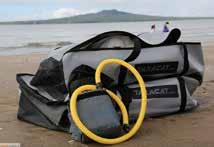

Thermal imagers come in all shapes, sizes and prices,
be a little confusing for the will hopefully give an insight into the key considerations. Thermal imagers that are available in New Zealand are either made in Europe
Burris, Night-Tech, ATN, Pard and numerous others). Regardless of country of origin, some basic though these by themselves are no guarantee of performance.
Choosing the optimum view (F-o-M) are important considerations when choosing a thermal imager.
at longer distance, which is important for use in open spaces, such as tussock and hilly country, when distances
The downside to high F-o-M, which is less of a problem at long distance.
At closer distances, F-o-M is far more important. If using a thermal for bush stalking and hunting in wooded areas, the target
metres away. A wide F-o-M means that the target can be picked-up quickly.
mainly determined by the following factors:
• Longer focal length lenses provide a higher given sensor size. Shorter focal length lenses provide a wider F-o-M. A long focal length is while a shorter focal
Thermals that are to be used in a variety of terrains tend to have
• the physical size of the sensor plays a big part in determining
A smaller sensor will have and narrower F-o-M for any given lens focal length. For instance, a
17µ pitch will have a
narrower F-o-M than a 17µ sensor.
It must be stressed that I am referring to the physical size of the sensor, not the number of pixels and pixel size. For instance, sensors have a smaller physical size than comparative 17µ sensor. An example is that a similar physical size as a
focal length lenses to achieve and F-o-M.
Most thermals available in New Zealand do not provide a testing standard for the sensor, which may lead to the use of sensors that may not be designed for the knocks and shocks of
For instance, sensors
camera security systems, whereby the image is displayed on a computer sensor is used with a 4:3 micro display, such as
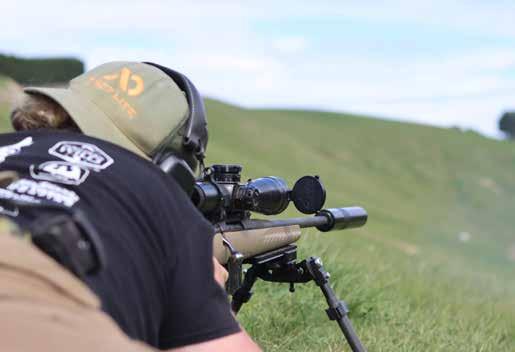

Suppressor range 222 through to 30-06 41mm diameter 9” Hybrid “Cleanable” Spartan
be misled into believing that any advantage.
Pulsar thermal imagers use French made Lynred sensors that are used for defence, aeronautics and other highend uses. These sensors are
ensuring that the sensor will deliver high performance and lower failure rate in harsh conditions. This is one of the reasons that choice for professional and government users.
The power supply is very important for getting the


most out of your thermal. Factory designed batteries that deliver the correct current and can be replaced in an instant is the best option.
A metal body with an inbuilt heat sink will protect the thermal from internal heat build-up that may reduce its performance and working life. Also make sure it is fully waterproof (IPX7).
The best displays are
are old technology and only found in cheaply made thermals.
At the end of the day, you pays your money and takes your choice. Do your research and don’t be mislead.
2022
was again a huge success. Advanced Optics sponsored event, as well as the Air Patrol Special Merit Award. Advanced Optics also
imager and a set of ANV Generation 3 night vision goggles.
Zealand website for more information and please organisation: www.coastguard.nz
The volunteer gravestone cleaning group Friends of Wakapuaka aroused my curiosity, prompting me to walks around various parts of the cemetery. One particular gravestone that caught my eye marks the resting place of Bill and Lois
We have two multi calibre suppressors available in the hybrid model and this is possible because the hybrid ba e system has tight tolerances allowing the small ranges of calibre. The hybrid ba e system also lowers the risk of stray bullets and bullet strike
• The first is suitable for 22 Hornet through to 243 including, 222, 223, 22-250, 243.
• The second suppressor is suitable for 6.5 through to 30-06 including 6.5 prc, 270, 7mm-08, 284, 280, 308, 7.62 x 39 etc (not including 300 PRC or belted magnums).
• 9” in length (230mm), sits 4” forward & 5” back over the barrel (this is a “fixed” length and cannot be changed or added to)
• Weight 360 – 370grams (alu internal muzzlebrake 5-6,000 rnds)
• Colour - Black
The 41mm 9” suppressor is most suited for those who like to clean their suppressor.
aged 27years, Lois aged 23years, 24th December
This got me curious so I researched the story behind the gravestone. Google, newspapers, local researchers and recorded stories soon revealed one ‘hell of a story’. Then my attention was drawn to the book “RJ’s Story” by Robin
Picton 1994) where good friend Robin tells of the incident in full.
The two families had travelled from Motueka to shopping, in particular the extra supplies for their planned holiday to Torrent Bay the following day. Robin and his wife drove by car while Bill and Lois travelled by boat, their holiday supplies for both couples

loaded on board ready for the trip to Torrent Bay.
When Bill & Lois set off from Nelson, the sea was “a bit rough but we didn’t think too much of it”. Lois liked to sit on the front deck and lean back against the wheelhouse. It was not until later that day that Robin and his wife Val were alerted to an incident at Mapua. The boat had been found aground on a nearby beach, with its motor still running but no-one on board. That is until someone climbed on and found a baby fast asleep in the cabin. This was soon established as being Raewyn, of Bill and Lois.
Bill’s body was later found washed up on the beach and Lois’s body was found channel. Family concluded that it was likely that Lois must have slipped off the deck in the rough seas and when Bill tried to pull her back on board, her wet weight and size was too much and Bill also ended up in the sea as the boat motored on.
Sadly for all the families and friends, Boxing Day 1955 was spent at all the supplies in the boat were consumed by mourners rather than the happy holiday makers at Torrent Bay.




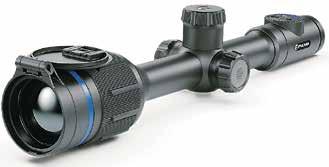


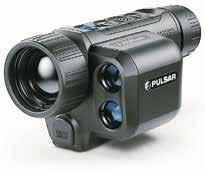
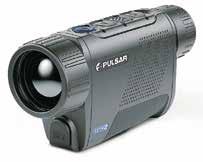
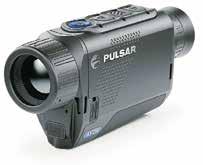
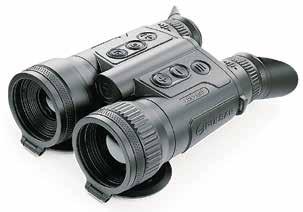


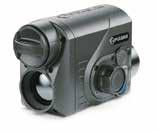

In 1863, the sailing ship Delaware ran aground about 30 km northeast of Nelson. The wreck occurred in a bay known as Wakapuaka.
Accounts of the incident often emphasise the heroism of five local Māori, including a woman named Hūria Mātenga, who helped the crew get ashore The wreck of the Delaware | NZHistory, New Zealand history online
Delaware Bay (Wakapuaka) also has a long history as a sheltered, safe allweather launch site for local commercial ventures, recreational fishing, boating, and diving.
The Bay’s estuary has been used for generations as an unconstructed natural sloping surface to launch and retrieve small boats. It is a safe option for those who launch at nearby Cable Bay and get caught out with prevailing conditions or for those who launch at Nelson but cannot safely return.
However, there is a stando between the Nelson City Council (NCC), with local Iwi support, and the public’s right to launch and retrieve boats in an area free of cockle beds and
burial grounds. This has led to the NCC taking the matter to the Environment Court, asserting that driving on the estuary to launch and retrieve boats is not a permitted activity under the Nelson Resource Management Plan.
Locals who object to this interpretation of the Plan have formed the Delaware Bay Access Group Inc. The Access Group has repeatedly raised with the NCC the issue of risk to public safety but have had no response.
Fish Mainland provided its support to the Access Group’s a davit to the Environment Court from a recreational fisher perspective, specifically in relation to the importance of fishers’ ongoing access to the estuary since it is the only safe all-weather launch for small boats in the Nelson North Area. Several of Fish Mainland’s Board of Directors are familiar with the estuary and the very limited boat access available at Cable Bay. We share the Access Group’s concern that Cable Bay is very exposed to prevailing conditions, which can cause the launching and

retrieving of small boats to be an extremely di cult and dangerous operation that can put public safety at risk. In fact, one of Fish Mainland’s Directors has had first-hand experience with the dangers in launching a small boat at Cable Bay. In 2002, amid launching, a rogue wave pulled his boat o the trailer; it was sunk and damaged.
All the Directors of Fish Mainland have extensive experience as boat owners or operators over many years, including recreational
fishing, commercial fishing, merchant navy and yachting. We consider that the complete lack of recognition of the adverse safety factors resulting from the potential removal of safe launching in the estuary is irresponsible and potentially dangerous. In addition, it seems reasonable that if Cable Bay is permitted under the Plan as a natural sloping launching ramp, it follows that Delaware Bay (Wakapuaka) estuary should also be permitted for that purpose.
The NCC’s continued stance and apparent obfuscation on these matters, and related matters, appear to be for political reasons. If so, then the NCC’s legal action against the Access Group appears morally groundless, if not illegal, and therefore a wasteful use of ratepayers’ funds.
We firmly applauded the Access Group’s e orts to resolve all conflicts of interest and reach compromises from all sides to achieve the best
public outcomes for the Delaware Bay (Wakapuaka) estuary. For this purpose, Fish Mainland sought local Iwi agreement to meet to discuss each side’s position on the matter. The Iwi refused our o er in favour of awaiting the Environment Court determination.
Fish Mainland maintains there is a better way to resolve opposing positions. Please provide financial support for the Access Group in upholding access to the public foreshore.
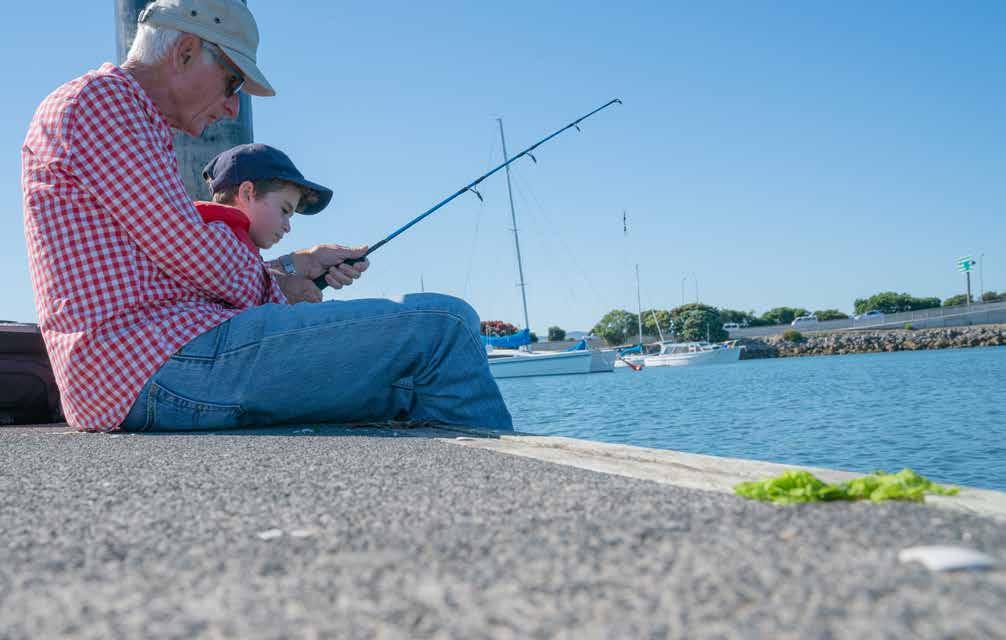
BROTH: WHITEBAIT: EGGS:
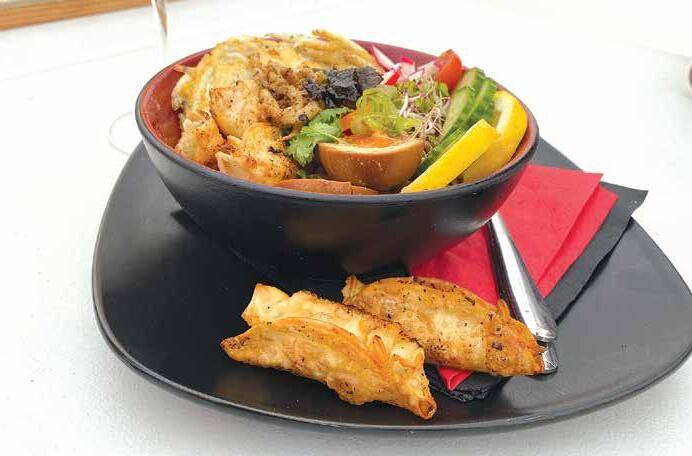

Freshy, zesty meets smokin chick!
Ingredients
Smoked “cared for” chicken boneless breast
Zesty Salad
Ripped cos lettuce
Vermicelli noodles
Super thin sliced chilli (red, green seeded or not)
Sprig or so of fresh coriander
Fresh lime juice
Black sriracha sauce
Diced nuts (you choose)
Original Smoke & Spice Co seasoning




Crimpy: While it is said everyone has a book in them, few achieve one let alone three. What motivates you to write?
Phil: Life is full of wonder.
Well, for me at least and it takes an array of forms. For example, the folly of two
triviality on the riverbank; mountain scene; the burden the iridescent colours of
a freshly hooked snapper;
to such events or stimuli has always impressed me.
Perhaps I’m sensitive to the nuances of life? I’m not sure, but I’m often moved to describe these personal experiences/observations and share them with others.
Crimpy: From your debut book ‘Fur, Fish, and Phantom Reds’ (2014), Typical Coaster (2018), to

there is a shift in style and tackle a historical project
Phil: into my early 20s, I spent Cascade River area. It is rainfall annually predisposes
Most years, acres of bush slide down into the creek,
constantly scour the creek in Cascade Creek struck me as quite inconceivable, but it was necessary if the coal was to be tapped into. There was no other way Westport. Remarkably such research revealed it to be the operational for 28 actionpacked years. It was also an epic pioneer and ultimate triumph; an example of limited resources impossible odds to wrest from nature what was later to be termed Black Gold.

Crimpy: journey?
Phil: Well, it took ten years of research so it was with all the people and esoteric professions. I’m

time. I’d have been lost many people.
John Rocfort proved to be
His party’s movements in the Buller River (above 1859 demanded so much additional research. There revelations there and I’m
Crimpy: Clearly a mammoth task—was there a price to pay and has there been a personal impact?
Phil: hours required to complete family and full-time work
My wife, Michaela, has been very considerate and I’m
keyboard, she deserves her Michaela, the kids and friends.
Learn more about Phil Cascade at https://philwalsh.net/



in the temporal sense and only accessible via print, increased his icon status. However, his authenticity and the fact that he was him immense credibility. In and the popularity of
amidst urban detritus. The ammo was left over from his
“If you ever run out of bullets and I’m not here, just help yourself!”
We’d only just met. I never did ‘help myself’ but the offer really impacted on me.
But of course, Peter Harker never ‘wore white robes’, a bad person but a real character—salt and pepper seasoned—the kind of bloke many wish they were

Peter was the consummate hunter and it was his
books, Hunting with Harker. This in an era where less books were published each year and they were concert of a super star rock
Such men were the objects of many yarns and you never quite knew where truth
pen, the natural storyteller wrote a column called Hunting with Harker for the Christchurch Star, which ran for years. Today in the world of Social animals, hunters have a constant stream of instant
but back in the 1970s, as students in Christchurch, Peter Harker was our ‘Social Media”. We’d live from Sunday paper to Sunday
only did the column provide valuable information on hitherto unknown places, remote valleys and new
our enthusiasm for the hunt.
in those days—you had to have substance Peter's other books were, Harker Hunts the Coast, Those were the days and Random Shots.
devoted member of the Peter Harker Fan Club and much of my enthusiasm for and couldn’t believe the mid 80s when I was his civvies! Harker was one of the most down to earth, friendliest people have met. When he heard I hunted with a .308, his eyes lit up and he me took

Harker’s tales. An example: three weekend warriors shot a tahr up some remote Westland catchment—their were inexperienced and out of condition. Well into the hike out and amidst an to exhaustion and feared exposure—they had to prized tahr head and head skin was left in the branches of a tree; perhaps they’d recover in in years to come. They pressed on. Hours later, they heard
covered in stubble and
pack—turns out he’d come from the next catchment over—bloody miles away!”
a bit, commiserated with their tale of woe about the lost head skin, and strode off. His whistle ultimately disappeared in the distance. Hours later they arrived at the carpark. There on the bonnet of their car was the myth of Peter Harker further fuelled.
Over the years, became latter years, was able to republish many of his old column was called Hunt Back with Harker. It was my
the circle: from avid reader and student of the master, to friend and publisher of the same.
Peter Harker died in Christchurch on 8
He now hunts in heaven. Rest in peace Pete.





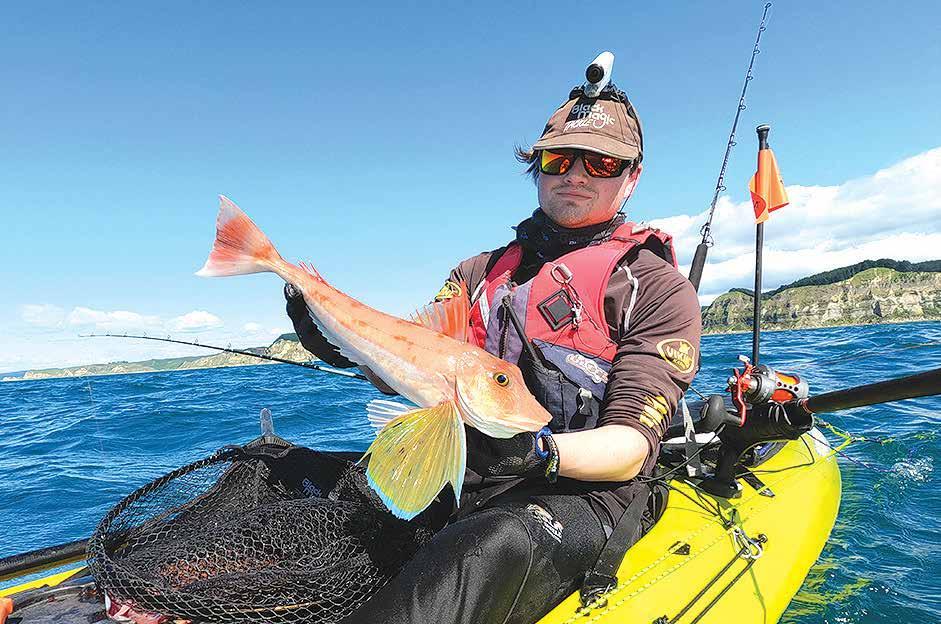
about gurnard that keeps bringing me back for more, maybe it’s their incredible colouration or how sweet fresh gurnard is to eat the day you’ve caught it. But one thing I know for sure is, it’s a heap of fun to go out light tackle.
After a long time off the kayak, I decided I better get back on the horse as spring had fully burst through, ridding us of the dreaded morning frosts. All the usual suspects like snapper, gurnard and trevally were likely to be hanging about
location, based on how nice

I’m honoured to have been selected for the New Zealand Open Pistol Team for the World Shoot in Thailand, which has been on hold for two years. It
2020 then again in 2021. With things getting back to something like normal, my fellow team members and I are looking forward to this.
The team in Thailand have a good reputation for putting on good shoots and, with
Normally, a northern Hawkes Bay beach like Waipatiki has quite a shore break, but on this day there was a big channel running up the middle of the beach creating the simplest of launches. The forecast was for some blustery wind to be around but it was nothing I couldn’t handle, especially with high cliffs helping to block some of the gusts. I hammered my way out my trail of chunks and popped a small berley in the water. Thirty minutes later... nothing. I didn’t let this discourage me. Some boaties may have upped the
more than aware it can take a bit of time for the gurnard to follow the scent to me.
simultaneously, both rods were bent over and looked like they had angry gurnard beating away their tails. Fish one was a fat female over a kilo and the second was a cm.
The baits were quickly reset and one rod only had just made it to the bottom before it was getting pounced on by a double hookup of grunters.
didn’t stop. I added another
The current and wind swirled around causing my anchor to struggle to hold and I had to reset it a couple of times, eating
Once I was on the mark again, I had more gurnard march onto my baits where
With plenty of gurnard in the back, sure to last me a few weeks of top-quality eating, I pulled the anchor and headed off to look for some different species. Not six months!
over two years extra prep time, I don’t expect to be disappointed.
As you can expect, there is more than just an Open team going. The different style of pistols puts you into competition with other shooters with the same type of gear. Because I get confused easily, I have shot Open for a very long time. This is mostly due to there being few restrictions, so most anything goes and I can adjust to what suits me. Making the team is one thing, then there is the paperwork required to take our pistols out of the country and back again. To be fair, the New Zealand side has been quite easy, while the
Australian bit has been on going and a bit confusing for an old man. The other
Singapore was not to be seriously considered as the risk of an extended stay was just too much. This is just the way it is when travelling hoops to jump through. This year hasn’t quite gone to plan for me and the breakage of my competition pistol has been anything but ideal. After some great work by Gun Supplies in getting
just in time for me to take it away, meant the changing of pistols at the last minute was avoided. I wanted my own gun anyway.
For many boaties and
Island, Labour Weekend is the start of the summer
anticipation of a good Golden Bay snapper season, we made the road trip to Collingwood from Christchurch, with friends.
Excitement was high, but Mohua (Golden Bay) is exposed to infamous northerly wind and, with a tidal entrance to the wharf, it can be challenging for those
would also experience the
Below are a few key points we have learnt, launching
ramp and heading across the bar into Golden Bay.
as this is great for the
heights for the bar crossing
If possible follow a local out or go with someone who
A system of local knowledge buoys has been put in place to help with channel navigation
Navigation in the extra planning, as the approaches are over be extremely shallow
The approach may accumulate logs and other River, after a storm or days of torrential rain.
After a couple of patchy
the weather, we had a break mid week. We launched our Osprey to a calm day and cautiously headed out and
spot of the morning.
After a disappointing hour at Spot X, we decided to up anchor and make the short 15 minute trip to another spot in the mussel farm.
The Osprey quietly crept up to our previously marked spot and we tied up. Now the pressure was on, as we had less than three hours remaining before the tide got too low to make it back to
The four of us took up in the boat and then it was bait on and lines into the water, along with the berley. Nerves began to build with the anticipation of who of the new season.
The usual boat banter had quietened down and the waiting began. Shortly, someone yelled out, “Enquires” and then, “Nibbles!” Then those magic words, “Wait one moment— caller hooked on the line!”
important snapper, so it was wound slowly and steadily towards the boat. As it broke the surface, we grabbed the every one’s excitement.
Over the next few hours, the excitement continued as we caught and landed eight large snapper—the disappointment of the last few days quickly forgotten.
And, at the end of the day, been taken, the boat has more enjoyable than serving that freshly caught snapper, with a cold beer, to friends and family as the sun sets.
the best shooters from all over the globe and is run at a couple of levels above anything we hold here. Then there is the heat; they always seem to hold these matches in the hottest places, so you need to learn very quickly water is more than just a friend but essential to get through the day. I have been blessed to have been a member of New Zealand teams before but am always proud to represent our country.
everyone wants to think of doing better next year, how up Pistol New Zealand—you won’t be disappointed.






















My son, Aarlem, wakes me up bright and early on a cold winter morning, the canals. A super keen a friend of mine telling me there were a few good salmon getting caught, so of course we had to get in on the action.
We show up to the canals at Pleasant Point, an almost
up and down the canals. This doesn’t deter Aarlem so we set up our rods, a Shimano kids combo, and start spinning.
no takes, we were scratching our heads while watching two fellas who seem to be catching salmon on every cast. Eventually, I have to ask them what they the hell they’re doing to catch so many. They kindly show me their rigs and we ready ourselves for attempt two, cutting one of the spinners, setting up a sinker with a
Well, that does the trick onto a 6lb salmon. Not to

be outdone by dad, Aarlem’s buzzing with anticipation when suddenly, his rod bends. From the rods angle I’m thinking “this is gonna be a good one.” I had no clue just how good it was going to be.
inch after inch of precious line, Aarlem’s winding his reel like a mad man. Sure
enough, he gets it to the edge and, not wanting to let it get away, I throw myself on it, securing an amazing rainbow trout. It’s bigger than any trout I’ve ever caught, and you better believe he hasn’t let me forget it. This kid is mad
sponsors out there, you’ll want him on your team.

A commercial fisher and his fishing partner have been fined $3,530 for having more than five times the daily limit for blue cod, some in an unmeasurable state, along with lying about how many fishers were on board their boat.
The daily recreational limit in Marlborough Sounds is 2 blue cod per person with a minimum size of 33cm. Blue cod must be presented either gutted or whole. They should not be filleted, unless they’re being eaten immediately as it would make it di cult to judge whether the fillet came from a fish of legal size.
Commercial fisher Justin Richard Searle (51) and Andre Julian Christian (54) both pleaded guilty to three charges each under the Fisheries Act and were sentenced in the Nelson District Court.
“Our expectation is that a commercial fisher would be aware of the recreational rules and would be ensuring that his less experienced fishing colleague was also schooled up on the rules. Blue cod is an iconic fish, and the daily limit
per person is low (2) for a reason – to protect the vulnerable resource so that all New Zealanders can still put this kaimoana on their dinner table, “ says MPI Regional Manager Fisheries Compliance, Howard Reid.
After gaining approval, the men set o on Mr Searle’s commercial fishing vessel, Tempest to fish recreationally in the d’Urville Island area of Marlborough Sounds in late April 2021.
Fishery o cers on sea patrol caught up with the Tempest on 28 April near the entrance of Port Hardy, d’Urville Island. They found 21 fresh blue cod in a fish bin – despite being told there were 16, along with four blue cod fillets.
Mr Searle told Fishery O cers there had been four people aboard the boat fishing – a story Mr Christian backed up at the time. MPI was provided names of the other two men.
“The story these men fabricated for our Fishery O cers during our inquiries wasted a significant amount of our time. We searched the area to locate the other fishers at sea and then
continued enquiries after returning to shore, only to find out they were never aboard the boat.
Mr Searle said he lied as he was panicked because of the number of blue cod on board and his fishing partner went along with the story. The rules are there for a reason – to protect the resources so they’ll be sustainable into the future. When we find evidence of deliberate dishonest behaviour – we will prosecute.
If you’re unsure of the fishing rules the best way to find out is to download the free MPI NZ Fishing Rules App . It will ensure you have access to up-to-date rules and daily catch limits. It also means you won’t have to tell creative stories when Fishery O cers ask to inspect and explain your catch,” says Howard Reid.
The fishing vessel Tempest was forfeited to the Crown and Mr Searle will have to pay a $3000 redemption fee to have it returned.
MPI encourages people to report suspected illegal activity through the ministry’s 0800 4 POACHER number (0800 47 62 24).

With summer coming up, Fisheries New Zealand is reminding everyone that the Kaikōura pāua fishery remains closed and harvesting pāua is illegal.
“Last month we invited people to have their say on proposed options to reopen the fishery for another season," says Fisheries New Zealand’s Inshore Manager South, Allen Frazer.
“The consultation finished on 30 November, and covered options for when the fishery should open, what the catch and size limits will be, and whether there should be a new
The daily limits on recreationally caught hāpuku (also known as groper) and bass will be lowered to a total of two per person in some areas, with a new accumulation limit of three per person on multi-day trips.
Oceans and Fisheries Minister, David Parker said the rule changes would take e ect from November 28 and would aid the recovery of stocks in some areas.
The changes apply to the
vehicle and vessel limit.
We also asked people for their views on reopening fishing for other species along the coast, such as shellfish and seaweeds, and if the commercial pāua fishery should be opened until the end of the fishing year.
The proposals looked at precautionary limits to ensure the fishery continues to be sustainable and provide kaimoana for future generations to enjoy.
Our fisheries analysts are working through the feedback to prepare advice to the Minister for Oceans
and Fisheries for his consideration. The Minister will make a decision about opening the fishery in due course.
In the meantime, the fishery remains closed. MPI Fishery O cers will be keeping a close eye on the Kaikōura area to make sure no one is illegally gathering pāua while it remains shut,” says Allen Frazer.
As you head out and make your plans for fishing over the summer, stick to the rules and don’t risk ruining your holidays with a fine. There are other plenty of fish you can catch in the meantime.
North Island and the west coast of the South Island, in the Auckland East and Auckland West, Central and Challenger recreational fishing areas.
“Hāpuku is a highlyvalued fish for recreational, customary and commercial fishers alike,” David Parker said.
“These changes follow significant cuts to commercial catch allowances and will further support the sustainability of
these fish.
There are fishing spots around the country that uno cially or o cially bear the same name – Groper Rock, or Hāpuku Riverbecause they were once common there.
Sadly, it’s very unlikely people will be able to find hāpuku in those places now.
Feedback from fishers across the North Island and upper South Island signalled widespread concern for hāpuku and bass fisheries in
To check out what they are and the limits for your area, download the NZ Fishing Rules App for free here: mpi. govt.nz/rules.
Once downloaded, the app will work o ine so you don’t need to worry if you’re out of cell coverage.
Keep an eye on our website for updates on the Kaikōura pāua fishery. Information is available at mpi.govt.nz/2023-kaikourapāua.
You can also or sign up to our recreational fishing email list – details are available in the NZ Fishing Rules app.
these areas.
Information from commercial catch reporting has also shown a downward trend in these fish in those areas, supporting those concerns.”
Summary of the changes:
• Recreationally caught hāpuku and bass will no longer have a combined daily bag limit with kingfish of five in these areas.
• Recreational daily limit


of two hāpuku and/or bass per person per day.
• A new accumulation limit (for a multi-day fishing trip) of a maximum of three hāpuku and/or bass.
• Kingfish will continue to have a daily limit of three kingfish per person per day.
Public consultation on the changes was part of Fisheries New Zealand’s regular reviews in October 2021 and April 2022.
More information can be found on MPI’s website at https://www.mpi.govt. nz/consultations/reviewof-sustainability-measures2022-april-round/



Brian Murphy, chief organiser of this year’s Mokihinui Fishing Competition, advises that the competition is celebrating its 50th anniversary this year. Stalwarts Ron and Helen Bennett will again be volunteering as weighmasters. To mark the occasion, a special draw is being made for all ticket
$400 in the senior section and $100 for the junior
extends from Granity School to the Old Man Rock, the main area surfcasters use is the Gentle Annie Beach. Signage on the narrow winding De Malmanches Road that accesses Gentle Annie Beach was upgraded last year by the Buller District
safer driving and minimal mishaps.
You need robust surfcasting
includes 14 foot rods and wire grip sinkers. Twice daily weigh-ins for the ten-day
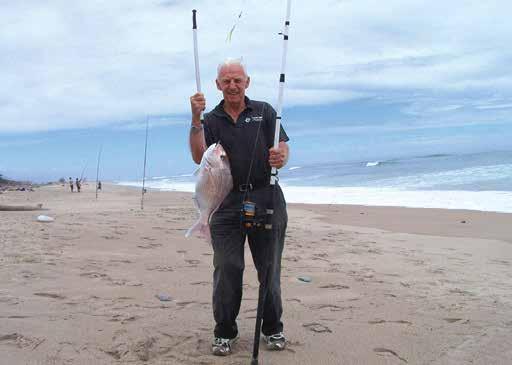
be at the Mokihinui Pub ‘n’ Grub Hotel, where a newly installed noticeboard will keep you up to date with results.
A lot of volunteers over the an enhanced, enjoyable and their families. We say, ‘Thank You’ to you all and long may it continue.


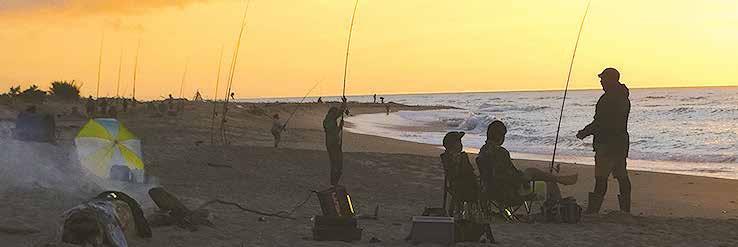

We’d
magic
two hoki and a bluenose.



Aedan Smart is a kid on
hunting, the Black Caps and is an aspiring karting
published author at the tender age of ten.
What started as a school speech, written for an Omokoroa No.1 Primary School project, in the Western Bay of Plenty, when he was eight, Bob the Prawn with fellow classmates and eventually took its creator
An amusing tale about the circle of life under the sea, the book follows Bob the Prawn, Sammie the Snapper, and Marino the Mako Shark as they encounter natures lively aquatic lifecycle.
“Mum always thought my

speech would make a good book,” says Aedan. “Then when we got stuck at home during lockdown last year,

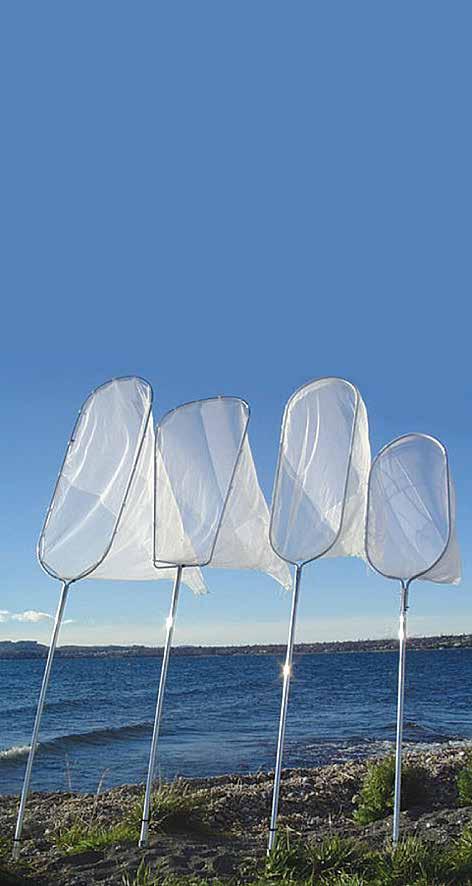
we had lots of spare time so decided to give it a go.”
Modifying the original speech into a book meant some of the content was adapted to appeal to wider audiences. However, much of the original speech and characters remain. Finding an affordable way of illustrating the story was made easy thanks to the online freelance app Fiverr. their popular children’s book illustrators Tuly Akter, Bob the Prawn was translated with beautiful visuals into a bright and colourful underwater themed book.
by family, friends, and connections for Santa sacks
made their way to some of the young patients spending
hospital. Featuring themes of diversity, conservation and storylines that promote a love of reading, Bob the Prawn has quickly become
fans and their parents. Their encouragement and feedback have given Aedan second run.





sales to the school. It was a much-appreciated donation at a time many fundraising events had to be cancelled.
approaching, a second print run of Bob the Prawn is available to buy online at www.chooice.co.nz: or click on https://chooice. co.nz/product/bob-theprawn-childrens-book

For the last year I have been part of the new core NZDA HUNTS team tasked with enhancing the delivery of the HUNTS programme around the national branches. Immediately before taking on this role, I started on the provisional HUNTS instructor pathway with the Wellington Branch, initially assisting with the course run for the Wellington-Porirua.
In September and October this year I had my
a HUNTS course as a provisional instructor for the Wellington and Porirua Branches. While I had obviously had great exposure to the programme and materials over the last
time seeing what it meant to coordinate and run a course
We had an awesome group of trainees with a spread of backgrounds and reasons for attending the course:
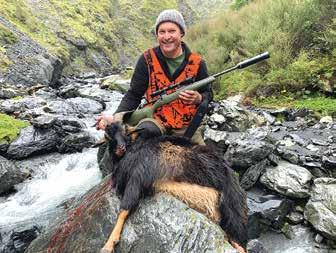


from those who had no prior experience, those who had grown up doing a bit of hunting and wanted to get back into it, those who had done a lot of tramping and wanting to add the hunting element, and those with a good basic foundation in hunting and wanted to upskill. With a range of prior experience of trainees, I found a useful exercise was to ask trainees what their were for the course (other than what was in the core materials). This meant we towards each individual’s objectives and ensure we could fully deliver on course expectations.
We are fortunate in Wellington to have access to NZDA house as the Wellington Branch club base, which provides an awesome setting to deliver the course. We undertook the bushcraft weekend at Donnelly Flat off the Mt Holdsworth road end in the Tararua Ranges, which provided the perfect location to introduce trainees to elements of bushcraft, navigation and river safety. Our range day was conducted at Wellington Branch’s Ohariu range, where we were lucky to also have the support and assistance of other
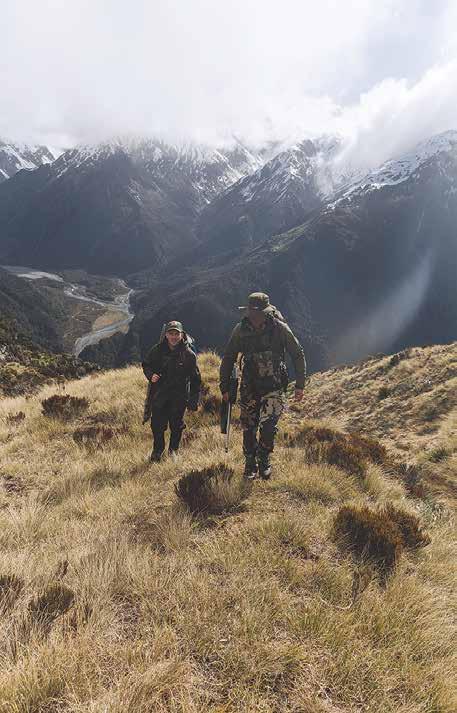
hunting weekend was up the Wharekauhau River in the lower Remutaka Range, which we were able to access through private land. This was the most logistically challenging part of the
to give everyone the chance of securing an animal. We saw plenty of goats and several deer and pigs, and at least one trainee per party was able to take a goat. While it is hard to manage the expectations of a large group on a hunt like this where everyone obviously wants to shoot something, it
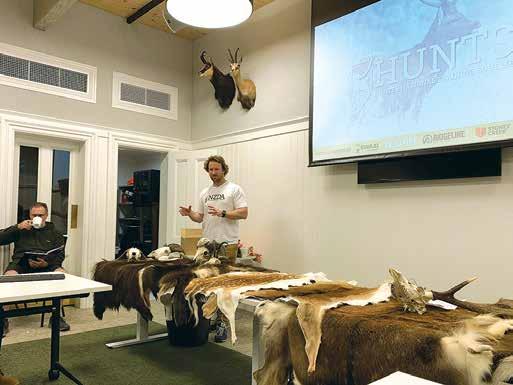
to experience and put into practise all the skills and knowledge learnt on the course. After the completion of the course, we were able to arrange a follow up hunt on land close to Wellington where we were able to help
boxes.
I thought the highlight of the course for me would be the moment that trainees
however I found it to really be the small things along the way, seeing trainees learn and put into practice small things that you often take for granted as a more experienced hunter. For example, for one of our trainees, her biggest concern was that she would not be able to handle spending a night out in the bush, but with right preparation and equipment, found that she loved it and had the best sleep she had ever had! I found delivering this course incredibly rewarding being able to share knowledge and seeing trainees getting excited about what they have learnt and applying

it in the backcountry. I would encourage any more experienced hunters out there to consider becoming a HUNTS instructor with the NZDA through your local branch. Nationally, the HUNTS program has
more branches offering the programme and more
greater capacity to train new hunters.

Improving hunter education and promoting safe and ethical hunting practices is critical to increasing the numbers of participants in our sport to promote and protect our recreational hunting rights in the future.
Information about the NZDA HUNTS programme can be found here: https:// www.deerstalkers.org.nz/ training-courses/huntsprogram

The dispute over the legality of launching boats at Delaware Bay Wakapuaka
with Nelson City Council seeking a declaration over the meaning of Coastal Management Rule 33.1 (CMr33.1), which allows for driving on and disturbance on the foreshore and seabed for a range of activities.
ambiguous and that it is ‘only
been heavily weighted in the direction of having the driving over the estuary to launch and retrieve boats declared "not permitted". The move has the full support of local iwi,
cultural and historical value and that they are the legitimate Kaitiakitanga.
Delaware Bay Access Group (DBAG) maintains the rule is unobscure, that driving over the seabed for the purpose of launching and retrieving is clearly a permitted activity, and has explored all avenues of resolving the council standoff, including: developing a proactive, managed access plan, which addressed cultural, environmental, signage, amenity and demarcation
issues, and initially had the support of iwi; resolving the issue in the new management plan through democratic process, and round table
refused, instead opting for the costly legal manoeuvre, funded by rate payers.
Where the councillors stand
Mayor Nick Smith tabled withdraw the action from
address the issue through the new Plan—a far more democratic way. His motion was supported with strong evidence and sound reason,
voting: For; Nick Smith, Tim Skinner and James Hodgson. Against: Matty Anderson, Matthew Benge, Trudie Brand, Stevens, Kahu Paki-Paki, Pete Rachel Sanson and Aaron Stallard.
Mayor Nick Smith, James Hodgson, Tim Skinner and Trudie Brand actively supported DBAG and campaigned for the removal from the Environment
elections. Mayor Smith, James Hodgson and Tim Skinner have honoured what they said.
Key facts about the case
• A designated launch area requires approximately one quarter of one percent
• The natural gravel course and ramp has been used by the public for at least
• There is no evidence of environmental or ecological damage from boat launching
• It is the only safe all weather launch site in the area and important to public safety
• changed the narrative and campaigned to the public that Rule 33 said launching was prohibited or not permitted and designated ramps were required—those words are not in the rule or the Plan
• Many of the council’s policies and objectives support Delaware Bay launching access yet
unaware of these or have a different agenda
• In effect, by it's actions
Bay, despite knowing it is unsafe and results in multiple rescues per week over summer, and it goes
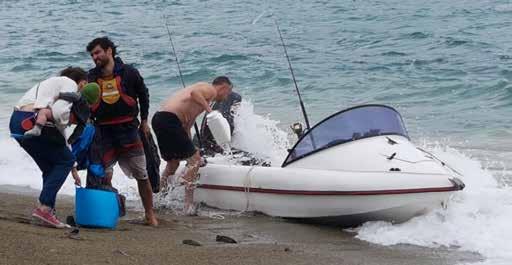
against their own Plan safety policy
• Delaware Bay Estuary is the primary access point to the local Wakapuaka Tāiapure, an iwi and local iwi have pushed ahead without consulting the Tāiapure Management appointed committee of locals and iwi
• No whāhi tapu or sacred in the area of launching or transit
• There is a question mark over how many staff and visited the area
• Maintaining public access to the coastal marine area is a national and regional priority
Why this is not just a Delaware issue
Many think this is a local
issue and doesn’t concern them. Wrong.
launching requires Resource
dangerous legal precedent that could put at risk similar access sites in the region and, indeed throughout New Zealand. Beach launching is fundamental to accessing the coastal marine area.
The Government is pushing to have all contiguous management plans. Should it could mean all launching areas then need Resource
Marlborough would be expected to fall into line. With the multitude of natural ramps in the Top of the South, could result. And don’t think it’ll never happen—Nelson
proven elected local body representatives are prepared to disregard facts, policies, objectives, logic, common sense, reason, public safety and public interest to drive their own agendas or ideology.
Step up or lose out
The Delaware Bay Access behalf and have a strong case to present but we need money to pay legal bills. So far, it has cost us approximately twenty grand so we can’t afford to choke on the doorstep now.
The question is—how much are you prepared to pay to the cause now.
Pay your donation to Delaware Bay Access Group Incorporated Society, bank account: 06-0958-0210014-00
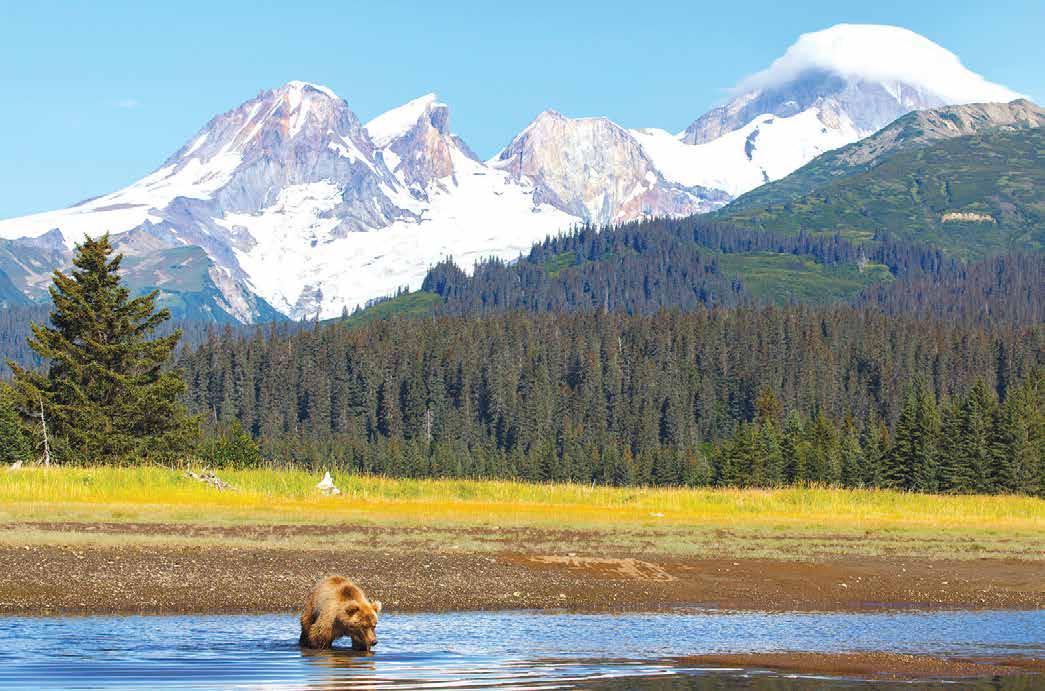
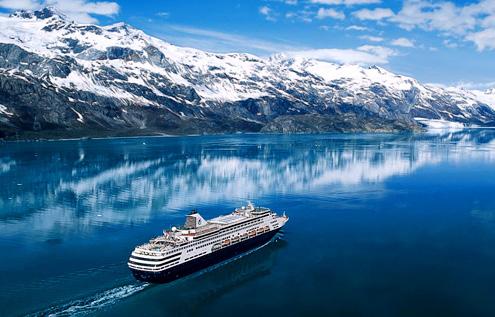
call from Annette or Crimpy telling me nicely, or not, to get my arse into gear, write this month’s Cut and get it on the email yesterday. I must admit to getting a bit waylaid this month with the Clubs’ NZ Trout Fishing Competition hosted by the Rotorua Citizens Club.
Lynne the Ruthless did the comp with me and I’m pleased to say, despite boat with very limited including torrential rain and thunderstorms, we never got into a domestic dispute worthy of a mention. While we were out of the major prizes, I picked up a daily prize for the heaviest trout on Lake Rotorua.
Something, however, did happen that will no doubt surprise anglers who knows
There was a prize for the heaviest brown trout, so I spent a bit of time harling very slow sinking lines with a couple of green rabbits on the end, in around a metre and a half of water over weed banks. I landed one,
which was deeper than some snapper I’ve caught recently.
To cut a long story short, on weighing and measuring, it came out with a condition
high. I think I can be forgiven for assuming I had the condition factor prize in the bag, until one came in at 73. What’s that saying about
As I said earlier, the together went well apart right beside the boat when off the motor and went into my pinky right up the bend. I had a couple of choices, the smart one being to pack up and go to a doctor. The other not so smart one was to push it through and cut off the barb. The dumb-arse one was to grab the pliers
doing a fair bit of catching, that’s the one I chose. A bit of pain but no great damage. The Ruthless preferred option one and reminded me of things like infections and blood poisoning. Too late.
Some readers may have noted in last month’s

column, I stayed away from anything, even approaching politics. I didn’t comment on the shortcomings of the Prime Minister, her cabinet
I didn’t even mention the little shitbags who are continually committing crimes without a thought for their victims or what will

for venting a bit of
and frustration.
In this morning’s Herald there was an article about a couple from Gisborne in their sixties. That’s a similar age to me and the Ruthless. Four bits of scum backed into their drive and when
the male occupant answered the door, they demanded alcohol. He said he had none, so for that he had the shit beaten out of him and is in hospital receiving treatment for some serious injuries. Now these gutless little shits probably won’t get caught and, if they do, bugger all will happen.
tell you in two words. No consequences. Until we get a government with the balls to return to treating criminals like criminals and not some underprivileged life forms who need a hug, we just need to suck it up and get used to it.
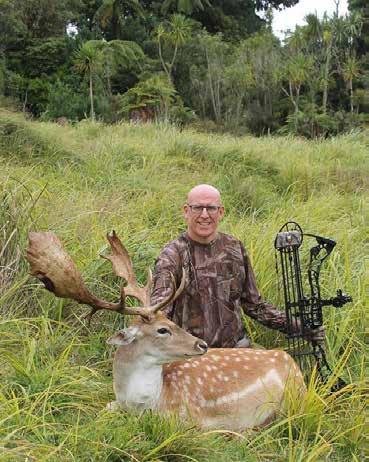




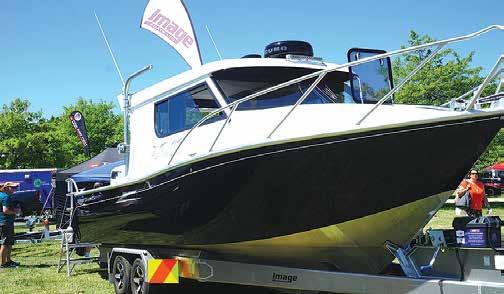








October is always a big deal to New Zealand’s freshwater anglers, as we wait in anticipation for the rivers to open after a long winter. To make up condition post spawning, the trout feed well at this time of year and, having not months, they are usually easier to entice.
The start of the season provides the best chance to net a trophy, and many of us spend weeks getting our gear
boxes and carefully watching patterns to make the most of the opening days. This year was no different – I’d tied up a good collection of my
my old lines and booked in my leave. All I needed now was for the weather to play
its part.
The week prior to opening day, the Nelson/Tasman region experienced heavy rainfalls making a lot of
Normally, this can overcrowd the tributaries and smaller rivers targeted early in the season. Somehow, I got lucky and ended up with a huge section of my favourite river all to myself. River levels were higher here than I’d seen before, and I knew that I’d need to adjust my tactics.
Fortunately, I had prepared by tying up a good collection of heavy nymphs to get the job done. It didn’t take long gathering at the heads of pools then feeding in deeper water to escape the current. It took some time to get
my drifts right, but once
over 5 lbs. A few would lasted another month and the day was a large green couldn’t seem to resist. It truly was a start to the season that I’ll never forget, and really highlighted the our region.
came late in the day. I snuck up on a nice one at the head of a run and had a sighter cast a couple of metres to hit the water, a huge shape emerged from nowhere and


went screaming downstream, trying its luck behind every branch and boulder it could
to the net. A likely contender
Our region boasts some of the best trout rivers in the country, providing a great alternative for those rough sea days and an opportunity to explore New Zealand’s beautiful terrain. If you aren’t taking part already, grab a licence and get yourself out there.
If there’s one thing Kiwi blokes look forward to, it’s a boys trip and as autumn rolled in, I was itching for one. I headed up from Dunedin with two mates and we rendezvoused with two more in Blenheim. With all the boys assembled we were ready to head out. This time the destination was d’Urville and the goal was catching some kingies. We had our skipper Big Dutchy, our deckhand was Oddyc, chief knot tier Mason, self-proclaimed and me.
We drove through the Marlborough Sounds, launching the Stabicraft Pass before we steamed over to the island where our Air bnb was waiting. Unfortunately, we had to share the accommodation with others, and they were the messy sort. Roaming around at all hours, in out the house constantly, they even shit on the lino! It’s the last time I share a room with a weka.
The next morning there was no mucking around, we were straight out on the
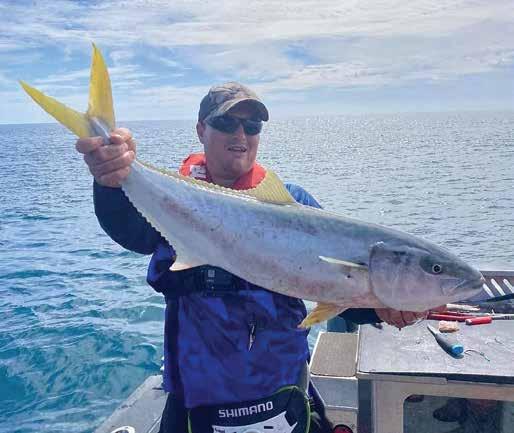
were all big fans of the pink ones but the kingie, not so much. We managed one good hookup and spent eight minutes reeling it in before the Taxman got him in the end.
Later that day we decided to head around the back side of d’Urville and dropped into side liked pink a lot better

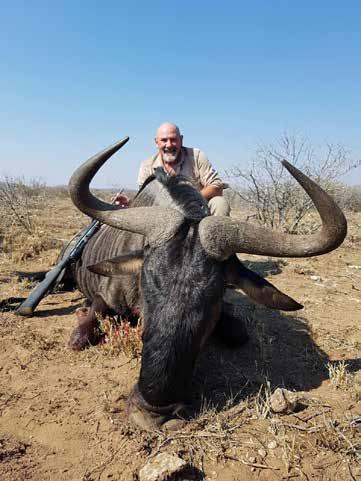
and soon I’d hooked one.
rod, paired with the Shimano
jig, I battled it out.
was unreal! You can watch YouTube videos till your eyes go square but it doesn’t do them justice. It felt like the devil was trying to pull me into hell. We only pulled in
two kingies that day before we needed to head back.
Big Dutchy has a heavy hand when he skippers, so we chewed through more fuel than expected.
Unfortunately, I started feeling below average on day two; my head felt like it might explode. I tested positive for covid and had to spend the rest of trip in bed, stuck with the weka.
Secrets of the Sea
Robert Vennell
Harper Collins
RRP $55-Hardback
Reviewed by Daryl Crimp
Being an island nation, we are all connected to the sea in some way and its value to our culture, history and psyche is immense. Fish to the Kiwi way of life as number 8 wire, yet we tend to take it for granted; it’s there and it continues to give.
This beautifully crafted hardcover book presents a kaleidoscope of our rich coastal oceans, delving into interesting exposés and asides on history, culture, taxonomy and more. For example, did you know that John Dory were traded
HMS Endeavour in 1769, or that Māori considered
the most delicious



species in Aotearoa, or that leatherjacket or kōkiri eat and that their spine is thrust up when they’re alarmed and locked into place by a
This is a fascinating read and quite different from others in this genre. Production values are superb: crisp concise layout abundantly supported with interesting photographs and illustrations. It’s accessible too—easy to read and of wide appeal. The perfect



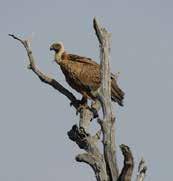
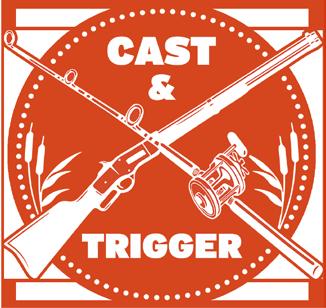

www.dinghysandoutboards.co.nz




